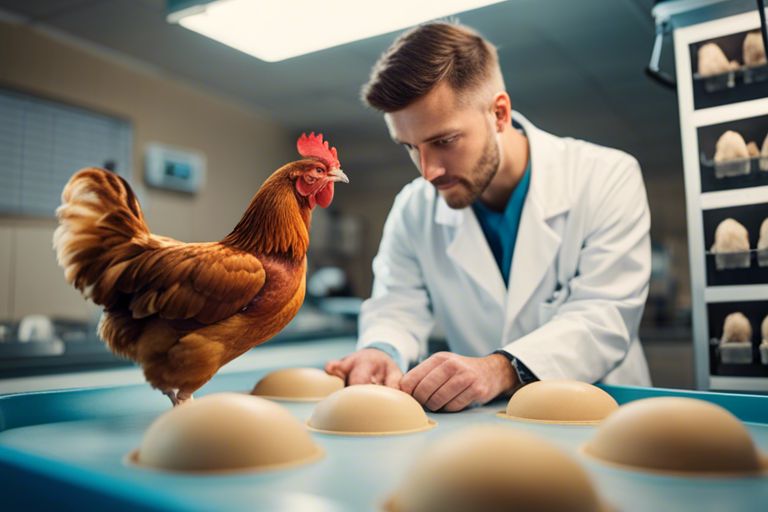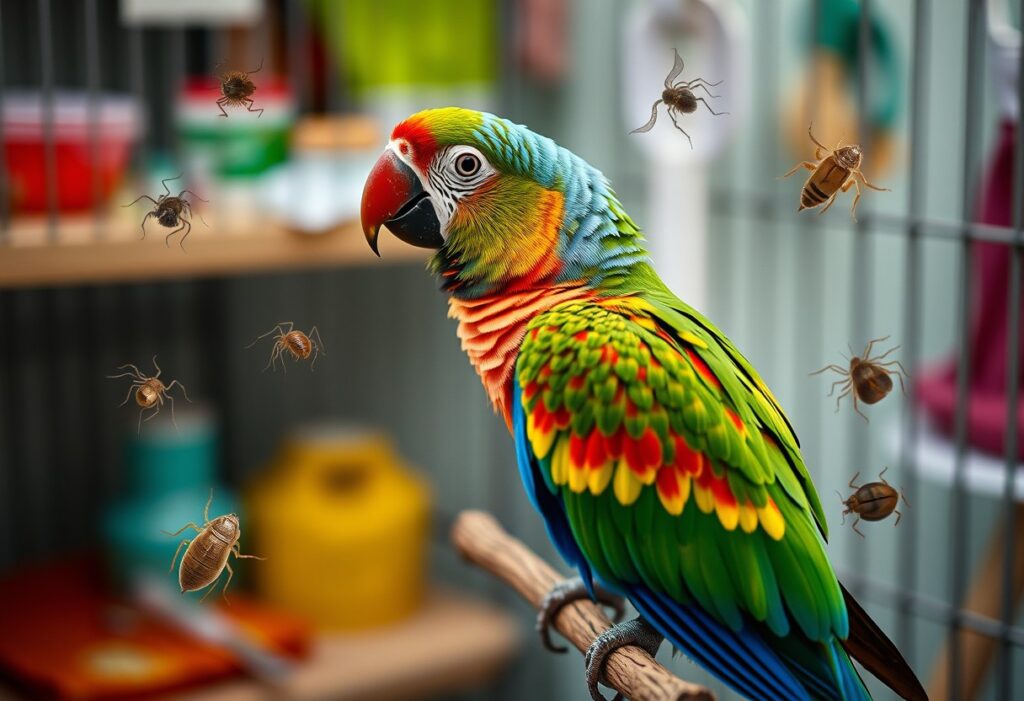You might not see them, but parasites can have a significant impact on the health and well-being of your poultry. Just like SUVs dominate the American car market, parasites can dominate a flock if left unchecked. From worms to mites, these pesky invaders can cause a range of issues, from decreased egg production to poor growth rates. In this blog post, we will examine the world of poultry parasites, discussing common types, their effects on bird health, and how you can take proactive steps to protect your feathered friends.
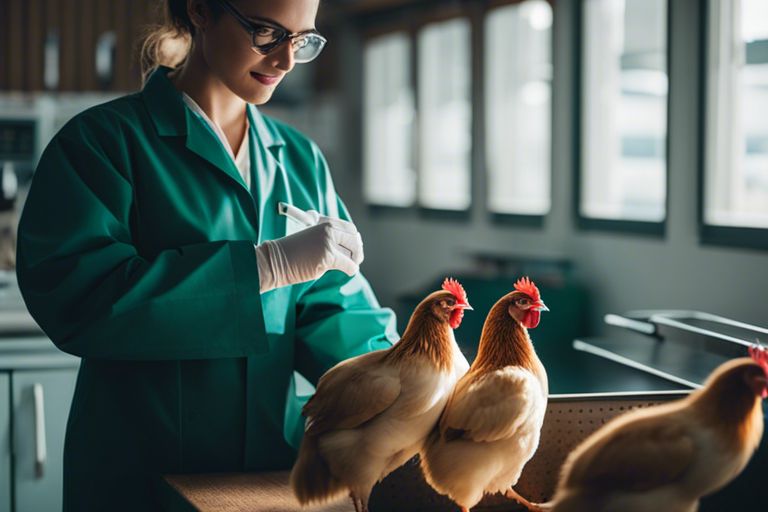
Types of Poultry Parasites
For poultry farmers, understanding the different types of parasites that can affect their flock is crucial for maintaining good health and productivity. There are two main categories of poultry parasites: endoparasites and ectoparasites. Endoparasites are internal parasites that live inside the bird’s body, while ectoparasites are external parasites that live on the bird’s skin or feathers.
| Endoparasites | Ectoparasites |
| – Worms | – Lice |
| – Coccidia | – Mites |
| – Tapeworms | – Ticks |
| – Flukes | – Fleas |
| – Protozoa | – Bed bugs |
Endoparasites in Poultry
The presence of endoparasites in poultry can lead to a range of health issues, including poor growth, decreased egg production, and increased susceptibility to other diseases. Regular deworming and monitoring for parasites in the feces are necessary practices to control endoparasites and maintain the overall health of the flock.
Ectoparasites Affecting Poultry
Parasites such as lice, mites, ticks, and fleas can cause irritation, feather damage, anemia, and even transmit diseases to poultry. Regular inspection of the birds for signs of ectoparasites, such as feather loss, scabs, or visible insects, is important for early detection and treatment. Proper housing hygiene, including regular cleaning and disinfection, can help prevent ectoparasite infestations.
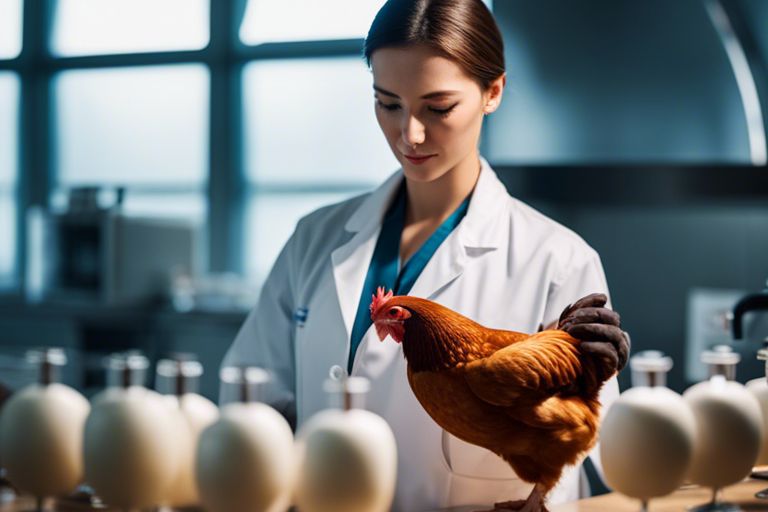
Diagnosis and Detection of Parasitic Infections
Clinical Signs and Symptoms
One of the crucial steps in diagnosing parasitic infections in poultry is recognizing the clinical signs and symptoms displayed by the birds. Parasitic infections can manifest in various ways, including weight loss, decreased egg production, diarrhea, poor growth, and respiratory distress. Additionally, affected birds may exhibit signs of anemia, weakness, lethargy, and in severe cases, even death. By closely monitoring the flock for these indications, poultry farmers can promptly seek veterinary assistance and implement appropriate treatment measures.
Laboratory Techniques and Diagnostics
Detection of parasitic infections in poultry often necessitates the use of laboratory techniques and diagnostics for confirmation. Various methods, such as fecal examination, blood smears, serological tests, and molecular diagnostics, can help identify the presence of parasites and determine the specific species involved. Additionally, post-mortem examinations can provide valuable insights into the extent of parasitic infestations and aid in formulating effective control strategies.
On the practical side, utilizing advanced laboratory tools not only enhances the accuracy of diagnosing parasitic infections but also allows for a more comprehensive understanding of the pathogens affecting poultry health. By employing a combination of traditional and modern diagnostic approaches, poultry producers can make informed decisions regarding treatment protocols and preventive measures, ultimately safeguarding the well-being of their flocks.
Diagnosis
Early and accurate diagnosis of parasitic infections is imperative to mitigate the detrimental impact on poultry health and productivity. Veterinarians play a critical role in conducting thorough physical examinations, reviewing clinical history, and performing diagnostic tests to identify the underlying parasites. By employing a systematic approach to diagnosis, veterinarians can tailor treatment regimens to target the specific parasites affecting the birds, thereby improving the overall health and welfare of the poultry population.
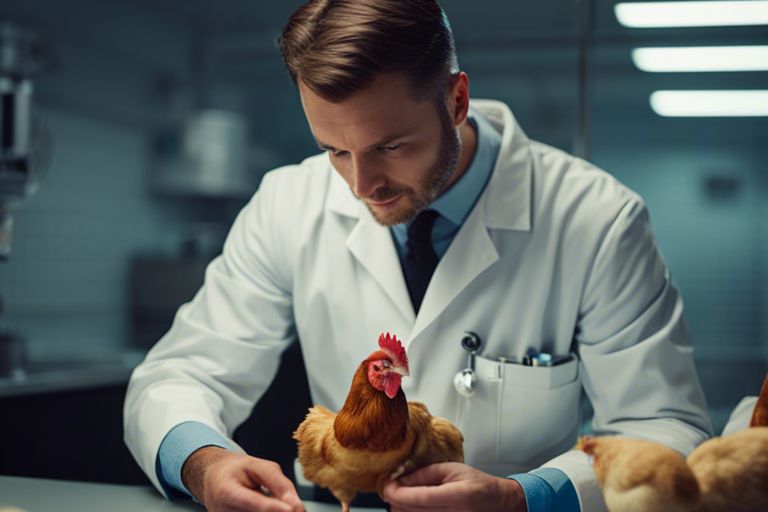
Management and Control Strategies
Preventative Measures
Strategies to prevent parasitic infestations in poultry are crucial for maintaining the health and productivity of the flock. Implementing good hygiene practices such as keeping the living quarters clean and dry, regularly rotating pastures, and practicing proper waste management can help reduce the risk of parasitic infections. Additionally, monitoring the poultry’s health regularly and quarantining new birds before introducing them to the flock can prevent the spread of parasites.
Treatment Options for Parasitic Infestations
For poultry already infested with parasites, various treatment options are available to eradicate the infestation and restore the birds’ health. Consultation with a veterinarian is imperative to determine the specific parasite affecting the flock and to prescribe the appropriate medication. Common treatment options include dewormers, anti-parasitic medications, and natural remedies such as garlic and apple cider vinegar. It is crucial to follow the veterinarian’s instructions carefully and complete the full course of treatment to ensure the parasites are effectively eliminated.
Economic and Public Health Implications
Impact on Poultry Production
Health plays a major role in poultry production, and parasitic infections can significantly impact the overall health and well-being of poultry. Infestations of parasites such as worms and mites can lead to poor growth rates, decreased egg production, and increased susceptibility to other diseases. This not only affects the economic viability of poultry farms but also jeopardizes the quality of poultry products for consumers.
Implications for Human Health
To understand the implications of parasitic infections in poultry for human health, it is crucial to recognize that some poultry parasites can be transmitted to humans through contaminated poultry products. Consumption of infected poultry meat or eggs can lead to foodborne illnesses in humans, causing symptoms such as diarrhea, abdominal pain, and vomiting. Proper hygiene and cooking practices are imperative to prevent the transmission of these parasites to humans.
Poultry farmers, consumers, and healthcare providers must be aware of the potential risks posed by parasitic infections in poultry. Regular monitoring, proper hygiene practices, and prompt treatment of infected birds are imperative to minimize the impact of parasites on both poultry and human health. By understanding and addressing these implications, we can ensure the safety and well-being of both poultry and consumers.
Final Words
From above discussion, it is clear that parasites can significantly impact the health of poultry birds. Understanding the various types of parasites, their mode of transmission, and the associated symptoms is crucial in implementing effective prevention and control measures. Regular monitoring, proper hygiene practices, and timely treatment can help in maintaining the health and productivity of poultry flocks. By being proactive in managing parasite infestations, poultry producers can ensure the well-being of their birds and safeguard the profitability of their operations.
FAQ
Q: What are parasites in poultry?
A: Parasites in poultry are organisms that live in or on the bird, deriving nutrients at the host’s expense. They can negatively impact poultry health and productivity.
Q: How do parasites affect poultry health?
A: Parasites can cause various health issues in poultry, including decreased egg production, weight loss, anemia, poor feather quality, and even death in severe cases.
Q: What are common types of parasites found in poultry?
A: Common types of parasites in poultry include roundworms, coccidia, lice, mites, and tapeworms. These parasites can infest different parts of the bird’s body.
Q: How can poultry get infected with parasites?
A: Poultry can get infected with parasites through ingestion of contaminated food or water, contact with infested birds or environments, and exposure to intermediate hosts such as insects.
Q: What are the signs of a parasitic infection in poultry?
A: Signs of a parasitic infection in poultry include reduced egg production, weight loss, diarrhea, pale comb and wattles, lethargy, decreased feed consumption, and feather damage.
Q: How can parasite infestations be prevented in poultry?
A: Parasite infestations in poultry can be prevented by practicing good biosecurity measures, maintaining clean living conditions, providing regular veterinary care, and using appropriate parasite control measures.
Q: How are parasites in poultry treated?
A: Parasites in poultry can be treated with various antiparasitic medications, which may include dewormers, insecticides, or acaricides. It is important to follow veterinary advice and directions for proper treatment.
